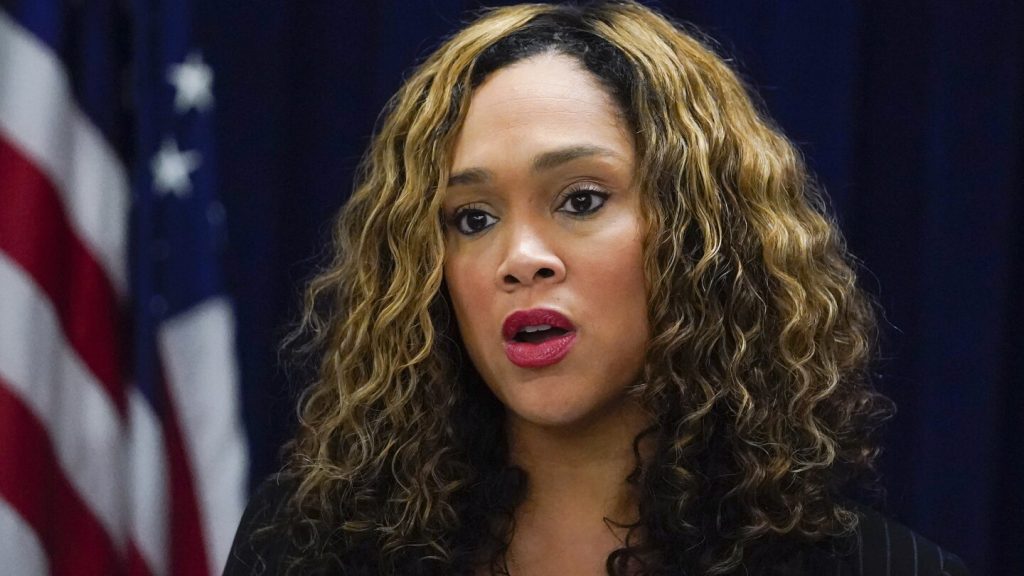Former Baltimore state’s attorney Marilyn Mosby is facing sentencing this week in Greenbelt, Maryland for lying about her personal finances in order to access retirement funds during the COVID-19 pandemic. Mosby, known for charging six Baltimore police officers in the 2015 death of Freddie Gray, withdrew $90,000 from Baltimore City’s deferred compensation plan in 2020 to make down payments on vacation homes in Florida. Prosecutors alleged she accessed the funds improperly by falsely claiming pandemic-related harm to her travel-oriented side business, while Mosby’s defense argued she had the legal right to withdraw and spend the money as she pleased.
Two juries separately convicted Mosby of perjury and mortgage fraud charges related to her personal finances, leading to the sentencing recommendations of 20 months in prison from federal prosecutors. Despite serving two terms as state’s attorney for Baltimore, Mosby lost a reelection bid following her 2022 indictment. Prosecutors emphasized that Mosby’s charges and convictions were a result of her repeated law-breaking actions, not her political or policy decisions. Mosby’s legal team, on the other hand, argued that she should not face jail time as her offenses did not involve victims, financial losses, or the use of public funds.
Mosby’s attorneys have urged the judge to spare her from prison, stating that jail time is not justice for her. They also revealed that Mosby had applied for a presidential pardon and received support from the Congressional Black Caucus. The trials for Mosby were moved from Baltimore to Greenbelt after her attorneys argued that she would not receive a fair trial in Baltimore due to negative media coverage. Mosby’s case has garnered national attention due to her high-profile position and previous actions in charging the officers involved in Freddie Gray’s death, which led to riots and protests in Baltimore.
As the sentencing date approaches, Mosby’s legal team continues to advocate for leniency, arguing that she should not be imprisoned for her actions. Despite the recommendation of a 20-month prison term, they assert that Mosby’s offenses do not warrant incarceration and emphasize her lack of public funds misuse or financial harm to victims. The outcome of the sentencing will determine the future of Marilyn Mosby, once a prominent figure in Baltimore’s criminal justice system, as she faces the consequences of her decisions regarding her personal finances and the accusations of perjury and mortgage fraud.














